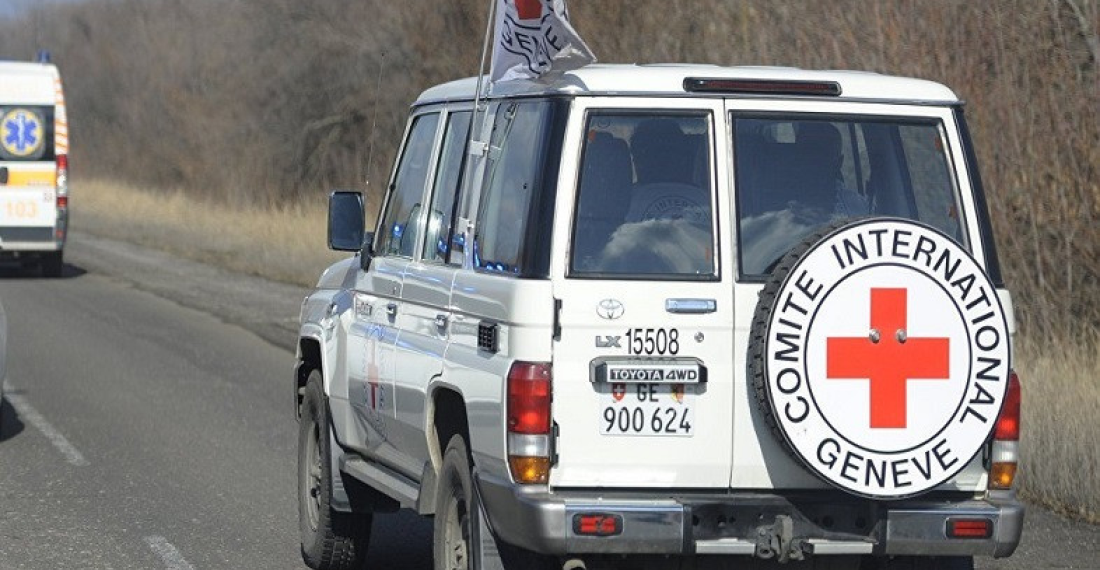The International Committee of the Red Cross (ICRC) on Tuesday (25 July) released a statement calling on the "relevant decision makers to allow the ICRC to resume its essential humanitarian operations" in Nagorno-Karabakh.
The statement read that despite "persistent efforts" on the part of the ICRC, they are currently unable "to bring humanitarian assistance to the civilian population through the Lachin corridor or through any other routes, including Aghdam".
"Tens of thousands of people rely on humanitarian aid reaching them through these routes. The civilian population [of Nagorno-Karabakh] is now facing a lack of life-saving medication and essentials like hygiene products and baby formula," the statement read.
"Fruits, vegetables, and bread are increasingly scarce and costly, while some other food items such as dairy products, sunflower oil, cereal, fish, and chicken are not available. The last time the ICRC was allowed to bring medical items and essential food items into the area was several weeks ago."
The ICRC’s regional director for Eurasia, Ariane Bauer, was quoted as saying, "our humanitarian aid convoys are a lifeline for the population in this area. With these convoys blocked, our concern is that the humanitarian situation will further deteriorate. We are most worried about those who cannot help themselves."
"The sick and people with chronic diseases are particularly at risk, as are the elderly, infirm and children. For us to operate here, we need the sides to reach a humanitarian consensus. This is life-saving work, and it must be allowed to continue."
The statement stressed that the ICRC's work is "strictly humanitarian" and added that they were "encouraged by the fact that the ICRC was able to evacuate 24 sick patients across the Lachin Corridor over the last few days, ensuring that they receive the medical treatment they need."
"Overall, the organisation has evacuated more than 600 people in urgent need of medical care since December 2022," the ICRC said.
The statement ended by noting that it was "continuing its bilateral dialogue with the sides and stands ready to continue its humanitarian work once such a consensus is found."
Azerbaijani Foreign Ministry reacts
The Azerbaijani Foreign Ministry said it "took note" of the ICRC statement while warning the organisation against "abusing" its mandate.
It also said "the Armenian side adamantly refuses" its offer to supply Nagorno-Karabakh with basic necessities from Baku-controlled Azerbaijan and the town of Aghdam in particular, saying that claims of a "tense humanitarian situation" amounted to "a means of political manipulation and pressure".
Essential surgeries suspended due to lack of medical supplies, public transport halted over fuel shortages
Azerbaijan, which since December last has in one form or another tightly controlled traffic along the Lachin corridor connecting Armenia to Nagorno-Karabakh, blocked ICRC humanitarian relief supplies to the region on 15 June after an incident at a checkpoint installed in April, reportedly aggrevating a looming humanitarian crisis in Nagorno-Karabakh.
Since December, de facto authorities and residents in Nagorno-Karabakh have complained of increasingly acute shortages of key supplies, including food, fuel, energy and medicines.
Questions have been raised about the impact of Azerbaijani actions on the Lachin corridor on the local population of Nagorno-Karabakh, and on 19 June de facto authorities in the region announced they were suspending all essential surgeries and checkups as shortages of key medical supplies worsen.
On 11 July, Azerbaijan banned Red Cross medical evacuations from Nagorno-Karabakh alleging smuggling attempts from Armenia into Azerbaijan, however recently Baku lifted the ban requiring those patients to be checked by Azerbaijani medical personnel while passing through its checkpoint in the Lachin corridor.
On 24 July, de facto authorities in Nagorno-Karabakh announced that all public transport in the region will be temporarily suspended due to severe fuel shortages.



